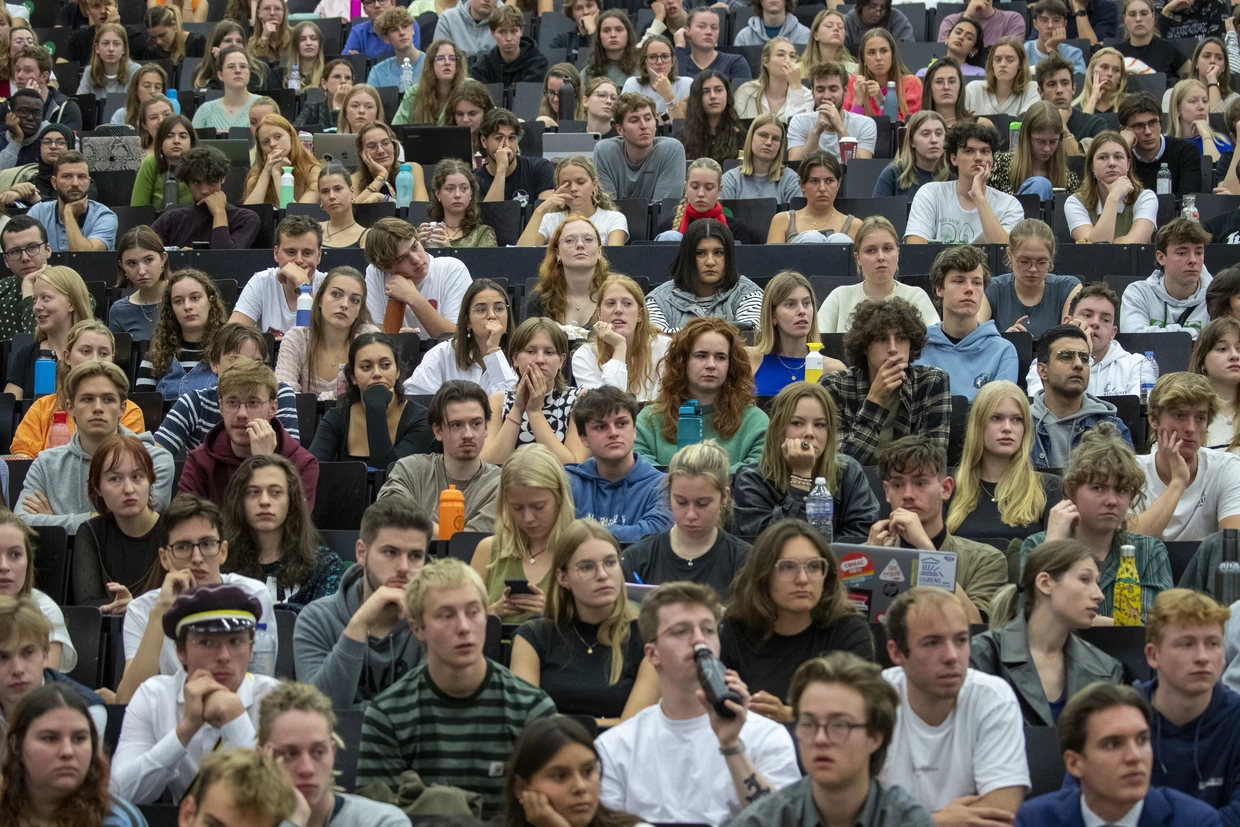Few Belgian universities land in the top 100 of international rankings. However, research hints that these comparisons are inaccurate and that, in fact, four of Belgium's universities are among the best in Europe when considering one key factor.
The 2025 edition of the Times Higher Education (THE) World University Ranking, considered among the most prestigious of its kind, includes just one Belgian university in the top 100, namely KU Leuven. The institution is ranked 43rd on the list of 2,000 universities, and the next Belgian university comes in at 112th place. UAntwerpen, UCL and VUB are placed even lower down.
The ranking assesses 18 performance indicators, divided into five pillars, focusing on "core missions of teaching, research, knowledge transfer and internationalisation." However, in a recent study, VUB researchers argued that the ranking is misleading and "inaccurate" to refer to quality differences between Belgian universities based on these lists.
"There are several problems with how these rankings are determined," VUB Vice-Chancellor for Research Pieter Ballon told The Brussels Times.
Reputation over quality
Firstly, researchers noted that the problems are related to the methodology. Ballon argued that organisations are rarely transparent about calculating scores for the ranking. When considering the publicly disclosed information, the indicators are "questionable" in his view.
In THE's ranking, 33% of the score is based on reputation (in research and teaching), while research productivity, for example, only counts for 5.5%. "This means that well-known universities or those that spend more on marketing have a huge advantage," he said. "But it should be about quality, especially as the whole claim of those rankings is that they give a ranking by quality."

Credit: Belga
However, a university's size hardly being taken into account is the main pain point for the researchers: "A university that is three times larger than another is going to have more published papers in absolute numbers or be more widely known. Still, scores hardly relate to scale."
Ballon argued that, although these rankings give a distorted picture of the differences in education and research quality, institutions are still too often judged based on their positions in these rankings. "If people only take the rankings into account, which many do because they are the most visible, they might think that there is a significant gap in quality between, for example, KU Leuven and UGent, or UAntwerpen and VUB."
Exceptional scores
To demonstrate this, the study conducted by VUB's Data Office compared the performance of four Flemish universities (KU Leuven, UGent, UAntwerpen and VUB) with all European universities up to 25% larger than themselves, filtering out those that are much larger. They assessed the institutions on indicators considered to be more objective, namely scientific publication output and acquisition of European research grants.
For scientific publications, they found that VUB (which has 21,200 students and 3,274 researchers) ranked in 14th place when it was compared to 154 similar-sized universities. KU Leuven, which is in a broader category of larger universities with 65,526 students and 10,432 researchers, comes in fifth place. When it comes to acquiring European grants, all four universities appear in the top ten. "That is incredibly exceptional," Ballon said.
Researchers note that there are limitations to the study – and that ideally, more indicators would be analysed – but the results do make the point. And that point is not to claim that one university in Flanders is better than the other.
"The message is that all four Belgian universities we analysed are among the absolute top when compared to European universities of a similar size," he noted. "The supposed 'differences' in quality quickly melted away."
Ballon's advice to prospective students who might rely on other rankings to choose their university? "Check how many students or how many staff are at that university and compare that way. If you filter this element out and consider that some universities spend heavily on marketing are more likely to be overrated, you will be able to better interpret them."
THE said in a statement to The Brussels Times that most of its metrics are scaled by the size of the institution "to avoid penalising smaller institutions". It added that the data from the academic reputation survey is fairly balanced with the other two data sources (bibliometrics and portal data).

